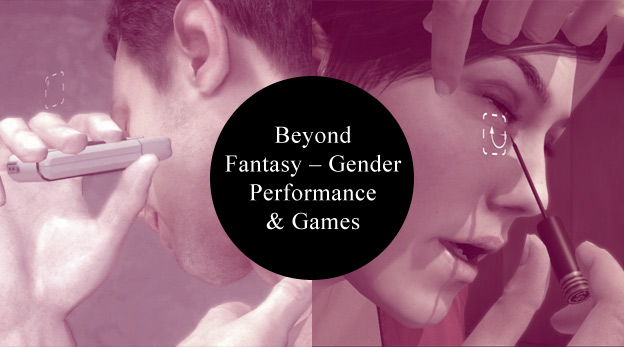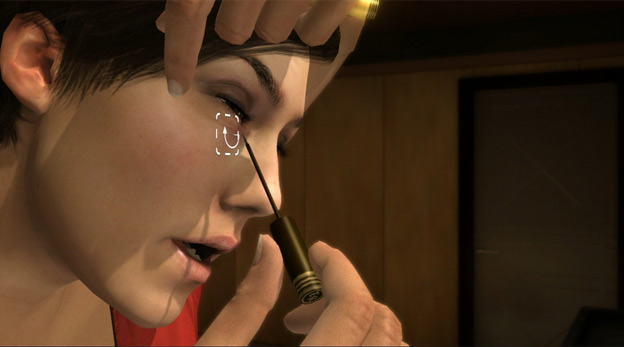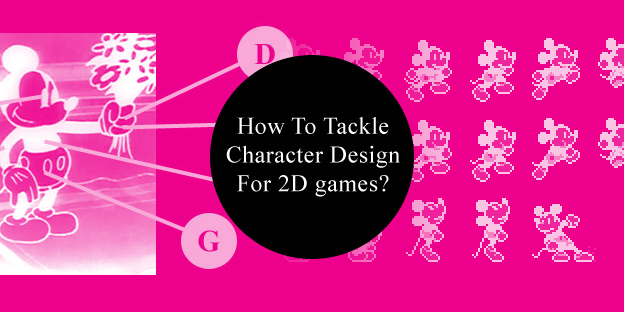Here is a thought: What if games where you save a princess or shoot up hundreds of gangsters aren’t primarily escapism and power fantasies for men but real life masculinity performance systems? And what if those systems require sexism in games and games culture to work? And what can be gained if we use the concept of gender performance for our efforts to change the culture?
A couple of months ago I learned of the concept of gender performance and applied it critically to games. Using that concept to examine games – what they contain, how they are sold and played – was actually quite enlightening. In this post I try to share my thoughts on the matter. I’m going to be quite critical at the beginning, a little angry in the middle, but hope the optimism at the end will provide an encouraging finish. Let’s go…
Gender Performance
I’m not trying to make a case for recognizing gender as performative only. There is quite some debate around what gender actually is. For some it’s performative, meaning it only manifests through our actions and decisions, a social construct, for others it has a biological component as well. Some people will tell you they personally developed their own gender identity because of their physiology, some people will tell you they did despite of it. This article is not trying to debate these questions, since I have not yet formed an opinion to go with myself.
What I can say is that the concept of gender as performance is a really helpful tool to understand how gender manifests in society and how much power we have to change it.
Gender performance happens when we present ourself based on our own gender identity and/or based on gender expectations coming from the social spaces we want and/or need to inhabit.
We perform through the language we use, how we behave, how we look and the interests we communicate. The clothes we wear for example perform a masculine or feminine look but also perform masculine or feminine interests (assuming we appear to like what we wear). We perform male if we do things that are socially understood as “things that men do” and the same goes for any other gender identity.
Our performed gender identity – as any other part of our identities – is then a factor in how we bond as friends, on how we find romantic and sexual relationships, how we rank in social hierarchies and finally how we fit into groups.
The term “performance” is not meant to necessarily imply some sort of fakeness in how we act. Many people can perform their gender rather authentically most of the time.
But often people are compelled to perform in a way that is not at all representative of how they feel. This happens because any group that accepted us because of the gender we perform can kick us out the second we no longer perform to their expectations. Any rank we might have due to our gender performance can be lost the second we no longer perform our gender as expected.
Another worrying aspect of social hierarchies based on gender performance is that – if gender is viewed as a dichotomy, which it is in most cultures – we value one kind of gender higher than another. In our patriarchal society, masculinity is defined as the opposite of femininity and performing masculinity well is as important for a high social ranking as is rejecting femininity. Or some would say, in order to perform masculine you need to reject the feminine.
I know this is a crude simplification of the volumes of work done by people who study gender, but I think that’s all I need for my case here. If you like to learn more, check the resources below.
Nerds To Men
Okay, let’s talk masculinity and why I think games provide a unique platform to perform it. Many masculine ideals are unattainable for many men. If you are too skinny or to overweight, there are certain acts of masculinity you can not convincingly perform. Also if you lack the necessary aggression or often the required financial backing.
As a stereotype, nerds don’t meet many cultural male performance expectations. They are seen as weak-bodied and childlike. They are easy to scare, have a low tolerance for pain and are not interested in cars, sports or other manly things. They are unable to assert themselves, so they retreat into their games, and girls laugh at them.
The last pick for any sports team in class, frequent victim of bullying even from female classmates, developing self-deprecating humor as a defence mechanism, but then widely recognized for being smart, creative and friendly by the adults around us. Comics, games – and yes even the fucking chess club – where my refuges.
Contrary to the stereotype however my refuges were not about retreating from reality. They were about bonding with others like me. All the guys who weren’t equipped to be masculine enough to be ranking higher on the social hierarchy could use geek media to bond over something else and create their own ingroup with their own social hierarchy. That’s where the stereotype of the jock comes in – the guy who is privileged enough to pull off the manly man, but who is poorly educated, an asshole and actually driven by social anxiety. This guy was not part of our ingroup.
A real man is strong, big and dominates others, takes what he wants. If you are not able to pull this off in a physical space, you just need to establish that it is equally manly to do it in a virtual one. And this is what gaming communities did.
Gaming provides a safe space to perform masculinity. A safe space to act manly. You fight without getting hurt, you flex your muscles without being limited by your own physiology, you kill without remorse, you take what you want without asking, you flirt up women without rejection.
This safe space can work for other gender identities as well. I’ve read plenty of testimony from transgender players that the fact that certain games allow you to choose your gender appearance in virtual communities is an empowering thing. Unfortunately in games communities, performing a straight cis male is what gets you ranked high on the social hierarchy ladder, while presenting anything else makes you a target for marginalization.
Sure, you don’t get jocks to respect your manliness by showing off your Call of Duty headshot achievements, but within the gaming community it gives you a certain identity and status.
Mainstream game developers/publishers capitalize on that desire for status and foster an environment through marketing that has performing cis straight male as the top of the social hierarchy. They encourage social anxiety around that ranking system and provide the remedy for that anxiety by creating most of their content in a way that is all about performing masculinity, from the way protagonists are designed, the heavy emphasis on combat gameplay and conquest, to the rejection of anything feminine.
Performing masculinity requires the rejection of the socially accepted opposite: femininity. If we accept the observation that mainstream games are devices for male gamers to perform masculinity, then they need to be devoid of emotions (except anger maybe), they need to be sexist, they need to be misogynist, they need to be transphobic and homophobic. …and the individual gamer needs to be those things as well.
IRL
We critics like to talk about games as fantasy – power fantasies to be exact – or escapism. We look at what happens on screen and try to examine how the onscreen actions might shape what we do in real life.
I’d like to propose that the things we do on screen – any virtual princess we save, any virtual prostitute we punch, any number of virtual men we slaughter – already are real life acts of masculinity once we look at them in the context of games as a community.
The infatuation of the gaming community with performing masculinity is a real thing and the way games are bought and played are real measures with which gamers can assert their masculinity within gaming culture. There is nothing fake or virtual or abstract about that system. This simply is how you act like a man within the gaming community.
This is where masculine performance became such a striking node connecting most if not all of my feminist criticisms towards games. It’s not enough to just assert your own masculinity through your performance as a gamer in order to rank high on the gaming communities social hierarchy. You also need to maintain, defend and enforce that being male is the highest ranking gender identity.
Masculinity loses its status and many of the related perks, if gamers allow women to participate fairly and equally or if they allow transgender and gay folks or anybody else to join in.
Masculinity loses its status and many of the related perks, if gamers allow games where conquest and conflict, objectification of women, and rugged male protagonists are not prominent to be accepted in the gaming space. …if they allow games that are not about male performance to stand.
The masculine performers don’t reflect that well on why they feel threatened, but lash out in response nonetheless. They scream fake geek, collusion, corruption, SJW agenda, whenever any non-masculine performance or performer gets any traction or whenever their devices to perform masculinity are criticized.
The fact that the internet removes them from their target enables them to attack and objectify real life women as hard as they do with virtual women. It’s all part of the same masculine performance complex and it wont change until the gaming community loses it’s almost exclusive infatuation with masculinity.
Gaming needs to friendzone masculinity.
Gaming will not change until influential companies stop generating demand and providing supply for primarily masculine performance. We can’t let them get away with it anymore. Exclusively conquest-centric gameplay and exclusive male-centric stories need to become a reason for lower rating. It’s lazy, outdated, cowardly and should no longer be the safe way to go about it.
The advertising for a game should also be part of the rating of games, as it is part of the overall media package and shapes its impact on gaming just as much as ingame content does, if not more.
Gaming will not change until influential voices and individual gamers stop belittling alternative concepts for game mechanics and stories of marginalized people. Any argument about what constitutes a real game, hardcore game or whatever criteria one would use to accept or dismiss game concepts categorically, need to be mute now. As of now most categorical definitions of “real” games are heavily biased towards masculine performance and should be diffused accordingly.
Gaming will not change until gamers stop silencing voices of women and other marginalized groups. Sites need to drastically increase comment moderation and establish drastically tighter moderation guidelines. Social networks and online communities need to drastically revise the tools they give their users to protect themselves from dogpiling, harassment, and other online attacks. It’s pathetic.
And most importantly in any social space, virtual or physical, masculine performance to the detriment of anybody else should no longer be accepted behavior.
Gaming will not change until the people who make and sell games no longer consist of a massive majority of male performers. Recruiting, education, early education and community work should drastically focus on giving women and marginalized people fair and equal access to gaming as a cultural space and profession. This must include extra efforts to inspire and enable women and marginalized people to allow them to catch up with the currently privileged cis straight male majority.
Overall…
…I think that fight against masculine performance is what feminist games criticism and the related progressive activism already does. The concept of gender performance however is allowing me to identify and causally connect the behavior of people, the content of media and the repercussions for the community. It helps me understand what is going on.
It also allows straight cis men to spot what they are doing wrong and can do better, instead of trying to find out what’s wrong with who they are. Performing cis straight male can be tweaked, rejected and guided, while BEING a cis straight man is inherent and feels rather unchangeable to most.
Finally it allows me to value alternatives to masculine performance better, so I can also better appreciate when designers show enough drive for progress to provide me with those alternative mechanics and experiences.
I hope gender performance can help you too in your conversations about the problems that gaming faces. It’s in no way a perfect concept and there are many many equally valid other methods of deconstructing the problems we face. Thanks for your attention. Please add your thoughts below and keep at it.
Resources
Images are from Heavy Rain
www.plannedparenthood.org/health-info/sexual-orientation-gender/gender-gender-identity
www.rolereboot.org/sex-and-relationships/details/2011-12-the-performance-of-masculinity
www.paulkivel.com/resources/downloadable-tools/item/135-the-act-like-a-man-box
Boys Will Be Boys: Deconstructing Masculinity and Manhood at Dartmouth
Tony Porter: A call to men







I’m confused :/
I admit, I’m haven’t read so much about gender studies… but I don’t get why there is a masculinity vs. feminity theme?
I don’t have the feeling, that it is an either… or… everyone has male and female parts in him/herself. Also people who judge others because of their gender or sexuality and insult them are simply assholes…
But why is a game, just because it’s about killing, something that needs to be rated badly or be insulted, if it’s a good made game?
Hey there,
We have a few things to unpack in your questions. So let’s go through it step by step.
The gender separation happens in marketing. Many indie games are just products of what the creators want to do, but almost any mainstream game or publisher foundend game is created with a specific target audience in mind. A common way to separate target groups is by gender. I’m glad you don’t think genders are separated as much as my writing suggests, but you need to tell that to marketers who actively and purposely segregate genders during the production of games and when they sell them.
On a bad day, I would agree here. But this is not a matter of individuals screwing up. It’s systemic. Gender segregated marketing and media are not individual cases, they are market wide phenomenons and so called “best practices” reward studios and publishers for keeping things as segregated as possible. These systems need to be broken up, not ignored, so that people who aren’t assholes (meaning people who don’t segregate by gender) have better opportunities to make, sell and buy stuff.
It doesn’t. However the marketing people, publishers and devs responsible for gender segregated content also believe that killing is something that is predominantly interesting for male audiences. So they push the violence is for men angle as hard as possible to make as much money as possible. That’s why these kind of violence oriented mechanics and content must be examined critically in regards to the overall market.
Thanks.
Very interesting take on the role of video games in this cultural stew. It’s at once obvious, but not. I’ve written about masculinity in games as reinforcing factors for culture, but it’s also true that games provide a space for males to perform masculinity and become validated. The angst and axiety many men suffer when games are criticized is evidence enough as you pointed out.
Just in case anybody missed it, PBS idea channel on gender performance:
https://www.youtube.com/watch?v=oMBYFXZknGQ
“I’d like to propose that the things we do on screen – […] – already are real life acts of masculinity once we look at them in the context of games as a community.”
Totally agree. Your actions are real if they are observed and you are judged by them, even if they are not physical. Virtual means non-physical, not irreal. We need to use AFK instead of real life. :)
Hey, Olof…
Ha yeah, AFK hits it pretty well.
Though in common discussions game v real life is usually used as the separating dichotomy, so I think it’s wise to stick to that language.
Cheers.
Another great articel. :)
I stumbled upon a very similiar concept: Performing morals. As with gender, beeing a moral person is (at least in part) a construct attributed by others after observing your performance. So acting morally is a survival skill, just as acting male/female is, if your group requires you to stick to the norm. Both concepts overlap: If you refuse to act up to the gender assigned to you by others, they might percive this as immoral. Hence legislation against homosexuality.
Yes, morals are some of the many rationalisations for enforcing behavior in groups… many times pretty misguide rationalizations.
God point to mention. Thanks.